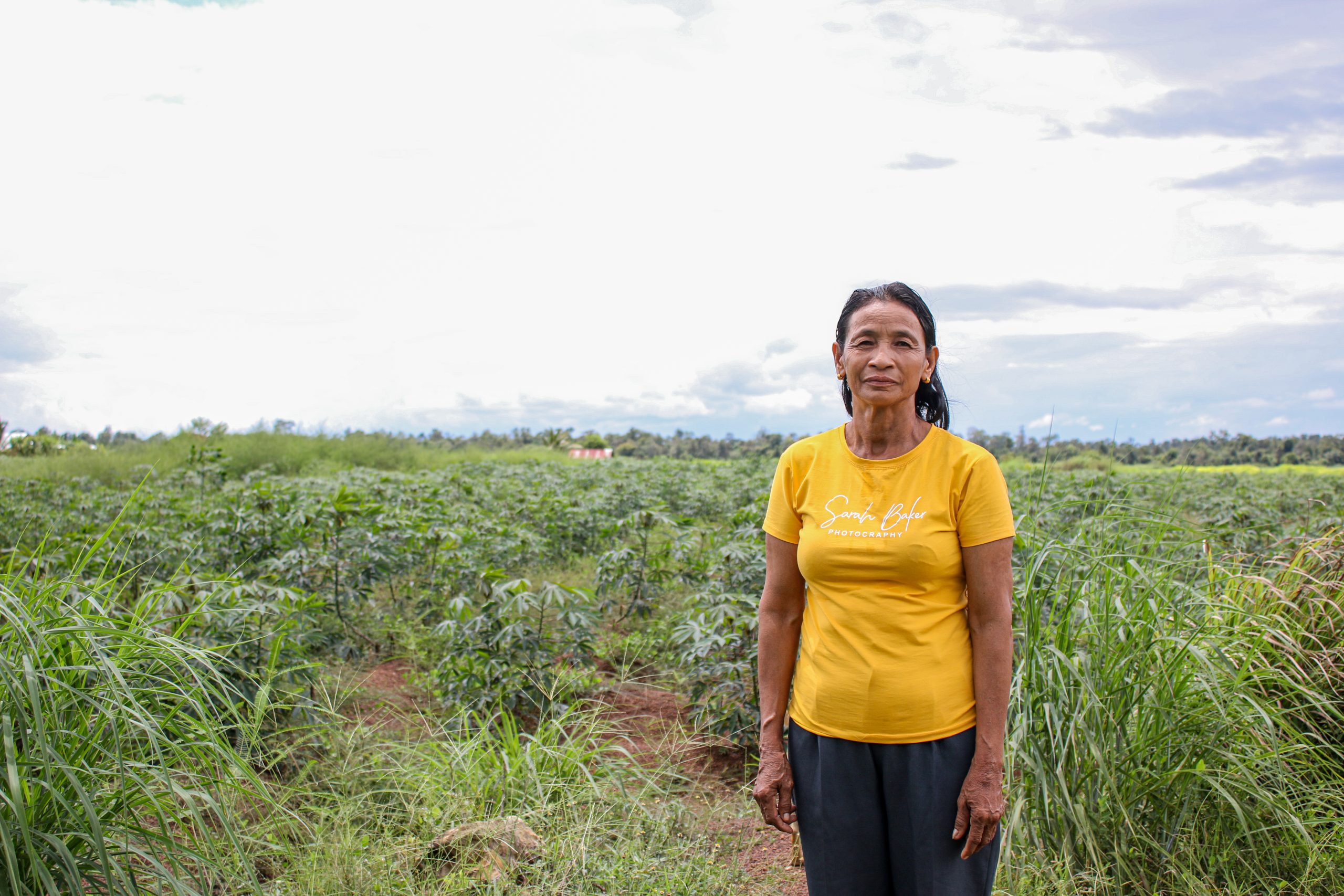Lead plaintiff Hoy Mai. Flickr photo by Prachatai shared under a Creative Commons (BY-NC-ND) license
More than seven hundred families who were driven from their land to make way for an industrial sugar plantation in Cambodia’s Oddar Meanchey Province in 2008 and 2009 have received a payment from the Thai sugar giant Mitr Phol Sugar Corporation Limited. It took seventeen years of sustained advocacy and, ultimately, bringing a class action against the company in Southeast Asia’s first-ever transboundary human rights litigation, but the families have now secured a measure of justice.
“I’m very happy that we’ve reached the settlement for all of our communities,” said Hoy Mai, a community leader and lead plaintiff in the case. “After we receive the development fund, we will be able to pay off our debts and restore our livelihoods. We will not need to leave our families and migrate to Thailand anymore.”
“We’ll be able to make a living and support our children to go to school,” added Smin Tit, the other lead plaintiff. “It will contribute to making a better life for our community.”
Following legal proceedings in Thailand and a court-led mediation process, plaintiffs reached a resolution with the company in February 2025. Mitr Phol agreed to make a substantial, though undisclosed, donation to support the community, which was paid to the families’ fiduciary in May. On May 14, 2025, the court issued an order to dismiss the case.
Inclusive Development International and Equitable Cambodia have been providing legal and advocacy support to Hoy Mai and other community leaders since 2010, including working with the plaintiffs and a team of Thai lawyers from the Community Resource Centre Foundation and the Legal Rights and Environmental Protection Association to file the groundbreaking class action suit in 2018. This was in addition to pursuing many other complementary avenues for accountability, such as engaging with Mitr Phol’s buyers and filing a complaint to the Thai Human Rights Commission, which found the company responsible for the land grabs and recommended that it compensate the displaced families.
A long road to justice
“This was a long road to justice,” said David Pred, executive director of Inclusive Development International. “Community leaders from Oddar Meanchey kept up this fight for nearly two decades, in the face of an enormous power imbalance. By taking the case to the Thai courts and effectively engaging with the big brands that source sugar from Mitr Phol, they were able to shift that balance of power and negotiate a remedy that they were satisfied with.”
After a Mitr Phol subsidiary, Angkor Sugar, secured a land concession from the Cambodian government in 2008, the communities and smallholder farmers living on and working the land were forced out to make way for an industrial sugar plantation. Hundreds of families were displaced, losing rice fields, orchards, grazing land, crops and access to forests that sustained their livelihoods. In one village, O’ Bat Moan, police and private security forces violently evicted residents, bulldozed houses, torched fields, and beat and arrested villagers.
At the time, Hoy Mai traveled over 300 kilometers by foot while pregnant to the capital Phnom Penh to petition the Prime Minister for help. Instead, she was arrested and gave birth in prison. For nearly two decades, she has fought for justice, including as a lead plaintiff in the Thai litigation.
A precedent-setting legal case
This case was the first time in Southeast Asia that a multinational company was sued for alleged tortious activities in a foreign country in a class action suit. The outcome shows that bringing such a suit to hold transnational corporations accountable in their home countries for abuses they commit abroad can yield tangible results for communities and for corporate accountability.


